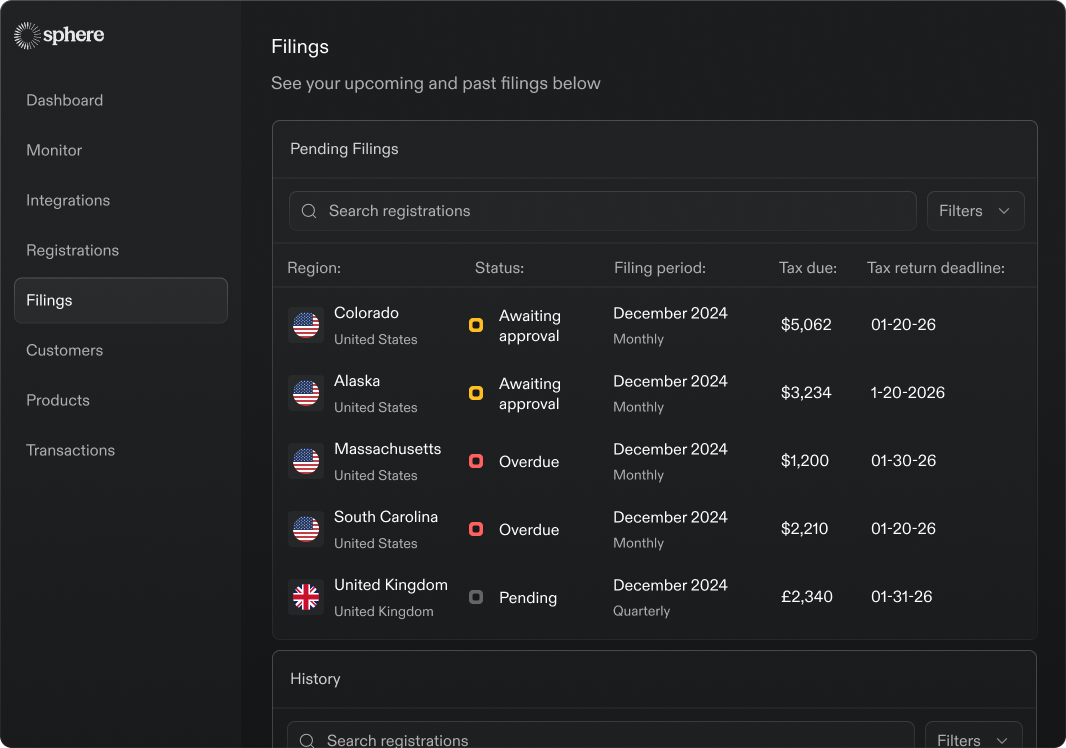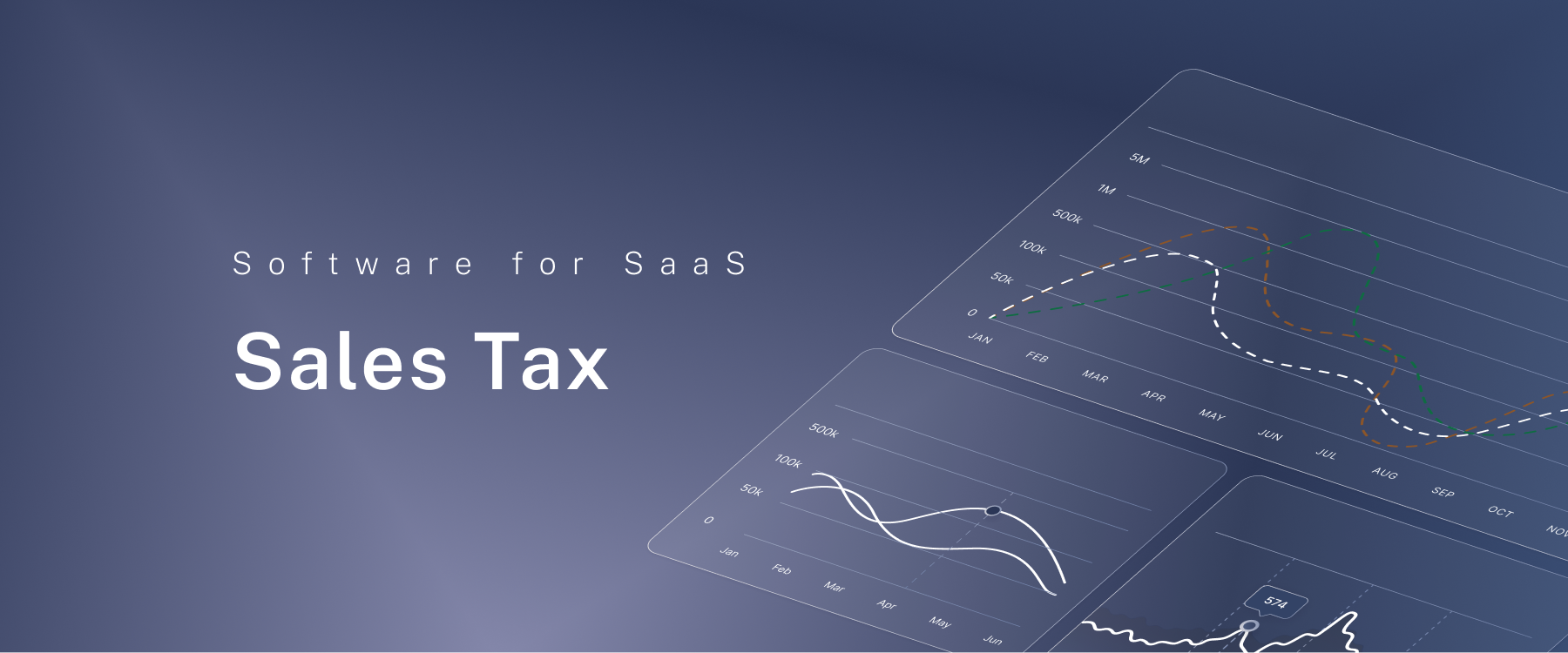%20(light).png)
New Zealand's GST requirements often catch SaaS and digital businesses off guard, particularly those expanding from the U.S. market. New Zealand's compliance obligations trigger based on revenue thresholds—meaning your NZD 60,000 annual sales threshold can sneak up faster than expected.
Whether you're a high-growth startup or an established enterprise, these rules apply equally, and overlooking them leads to avoidable penalties and operational delays that can derail your Asia-Pacific (APAC) expansion plans. Understanding New Zealand's GST system upfront ensures smooth market entry and keeps your business focused on growth rather than scrambling to catch up on compliance.
New Zealand GST Rate: Quick Overview
New Zealand charges a Goods and Services Tax (GST) at a standard rate of 15% on most goods and services. Long-term accommodation (28+ days) qualifies for a reduced 9% rate, while exports, international transport, and certain services are zero-rated. Key exempt supplies include residential rent and financial services.
All businesses—whether New Zealand-based or foreign—must register for and collect GST once their taxable supplies exceed NZD 60,000 in any 12-month period. This broad-based consumption tax applies to nearly all commercial transactions within New Zealand's borders.
What Is GST and How It Works in New Zealand
What does GST Apply To?
New Zealand GST applies to physical goods, digital goods, services, and SaaS subscriptions when sold to New Zealand businesses and consumers.
A consumption tax, New Zealand GST, is added at the point of sale.
GST vs. Income Tax
GST is an indirect tax, meaning that it is collected by businesses from consumers or other businesses at the point of sale. GST is “indirect” because it flows through businesses to the government.
Income tax, on the other hand, is a direct tax that is paid directly by individuals to the government on their earnings.
This guide focuses on indirect tax and how to handle it correctly.
GST Registration Requirements in New Zealand
Indirect tax registration requirements vary by country. In New Zealand, businesses are required to register for GST when they meet a specific sales threshold.
When is Registration Required?
Businesses who gross more than NZD 60,000 in a 12-month period are required to register and collect New Zealand GST. This translates to about $36,000 US or €31,000.
Depending on your business relationship with New Zealand, your business can register under one of two systems:
Standard GST Scheme
Businesses with physical presence, such as a location, inventory, or employees in New Zealand, must register under New Zealand’s Standard GST Scheme.
While registration for this scheme is a more involved process, it has upsides such as allowing your business to claim input tax credits when paying GST on business purchases.
Simplified GST Scheme
Offshore companies, such as SaaS or digital goods businesses, with no physical presence in New Zealand, can register under the Simplified GST Scheme.
A local representative is not required for New Zealand GST compliance.
How to Register for New Zealand GST
Whether registering for standard GST or via the simplified scheme, you’ll register via the MyIR portal.
You’ll need to provide the following documents and information:
- Tax reference number – EIN, VAT number, or other number
- Other business identifying details – Name, address, office and directors, etc.
- Articles of Incorporation
- Authorized contact information
- Registration date
Be prepared to register as your business approaches the NZD 60,000 threshold, because processing your New Zealand GST registration can take approximately one month.
Zero-Rated and Exempt Supplies
Though most goods and services are taxable at 15% in New Zealand, there are some exceptions.
What is Zero-Rated in New Zealand?
Exported goods and services (including digital services sold to customers outside NZ), some financial services, first-sale refined metals, some transportation services, and land transactions are considered zero-rated and do not require GST to be collected.
In this case, GST is still technically charged, but at 0%. If any tax is paid (i.e. to foreign suppliers), input credits are still available when filing your New Zealand tax return.
Read more about what is zero-rated in New Zealand here.
What is Exempt?
Fine metals, rental services, and some fine metals are GST exempt. No tax is charged on these purchases, and no input credits can be claimed.
Further, long-term hotel accommodation is taxed at a reduced rate of 9%.
Find out more about what is GST exempt in New Zealand here.
GST for B2B vs B2C
In some cases, when selling to registered businesses, you’re not required to collect New Zealand GST.
Reverse Charge for B2B
When selling to a GST-registered New Zealand business, you don't need to charge GST on your invoice. Instead, the reverse charge mechanism applies. The buyer self-assesses the GST amount and reports it directly to Inland Revenue on their own return. This simplifies the process since no GST money changes hands between you and the customer.
Keep in mind that you must collect and verify your customer's valid GST registration number before applying reverse charge. Without proper verification, you'll be liable for the uncollected GST. Always issue invoices clearly marked as "reverse charge" to ensure your business customer understands their self-assessment obligations.
GST for B2C
Once your business reaches the NZD 60,000 in any 12-month period threshold, you must charge GST when selling taxable goods and services directly to consumers. This applies even if you are a foreign company with no physical presence in New Zealand.
Filing GST Returns and Remitting Tax
Here’s how to file and remit New Zealand GST.
Filing Deadlines & Frequency
Businesses are required to file and remit GST periodically, based on sales volume.
All GST returns are due on the 28th of the month after the taxable period ends. Penalties apply for late filings and payments.
How to File and Pay
Taxpayers file and pay with the Inland Revenue via the myIR system. You’ll set up an account when you register for GST and simply follow the instructions.
Payment is also fairly simple, though note that payments must be made using SWIFT transfers in the IRD reference format:
- Account name: Inland Revenue Department
- Address: Westpac, 318 Lambton Quay, Wellington
- Account Number: 03-0049-0001100-27
- SWIFT: WPACNZ2W
- Reference: [IRD number]-[GST002] [End Period Date]
GST Invoicing & Recordkeeping
Issuing Invoices
When selling to a New Zealand buyer, you must make sure to provide the following information:
- Your GST registration number
- The supply/sale date
- The total amount charged
- Whether GST is included in the price or whether reverse charge mechanism applies
As of 1 April 2023, these are referred to as “taxable supply information” rather than simply “tax invoices.” The main difference is that this allows for greater flexibility when providing this information to customers.
Keeping Records
In case of an audit, you’re generally required to keep all GST records for 7 years. Be sure to retain:
- Invoices
- GST adjustments
- Exports
- Digital logs
Inland Revenue auditors can request detailed information down to individual transaction levels, so comprehensive record-keeping is crucial for compliance.
Penalties and Compliance Risks
Penalties for filing New Zealand GST late can range from NZD 50 to 250.
Penalties for late payment progress in stages. They start at 1% on the day after the payment is due, a 4% charge on the 7th day after the payment is due, and then 1% monthly after that.
Note that if you’ve never been late on a payment, you may be entitled to a grace period on your first late filing or payment.
Underreporting or fraud, however, can lead to a step 150% penalty.
.png)
How Sphere Automates NZ GST Compliance
Sphere automates your entire New Zealand GST process from threshold monitoring to filing. The platform tracks your NZD 60,000 sales threshold and alerts you when registration becomes mandatory.
Once registered through Sphere's streamlined system, GST calculations happen automatically at checkout or invoicing. Filing and remittance run on autopilot—no manual reporting required. If Inland Revenue requests additional information, Sphere's tax professionals provide dedicated support to handle communications on your behalf.
Grow in APAC Without the Tax Headache
New Zealand's GST system is fairly simple to navigate, but will be unforgiving if you fail to register and collect once you've reached the NZD 60,000 threshold.
With Sphere handling your compliance automatically, you can focus on expanding across the Asia-Pacific region without worrying about tracking sales thresholds or missing critical filing deadlines.
The Asia-Pacific market represents massive growth potential for SaaS businesses. Don't let tax compliance slow down your international growth. Sphere manages the complexity while you grow your business.








.png)

.png)






